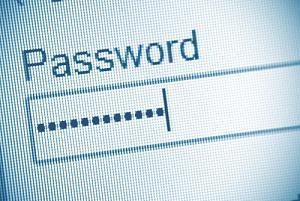Sharing Your Netflix Password Could Be a Federal Crime
 The law can be very complicated. For this reason, among others, the American legal system consists of several tiers, each designed to catch mistakes and prevent inconsistencies. Still, there is always the possibility that a court’s decision could have serious unintended consequences, as the scope of a such a decision is not always immediately evident. Such was the scenario with a ruling by a federal appeals court last month—a case in which the dissenting opinion expressed concern that millions of people may have just become "unwitting federal criminals."
The law can be very complicated. For this reason, among others, the American legal system consists of several tiers, each designed to catch mistakes and prevent inconsistencies. Still, there is always the possibility that a court’s decision could have serious unintended consequences, as the scope of a such a decision is not always immediately evident. Such was the scenario with a ruling by a federal appeals court last month—a case in which the dissenting opinion expressed concern that millions of people may have just become "unwitting federal criminals."
United States v. Nosal
The case in question involved a defendant who was charged with conspiracy, trade secret theft, and computer fraud against his former employer. The man, along with co-conspirators—accessed a database maintained by his former company using the login credentials of another person. As a result, the man was convicted under the Computer Fraud and Abuse Act (CFAA). The U.S. Ninth Circuit Court of Appeals was presented with the case when the defendant challenged the trial court’s decision.
The CFAA has long been understood as a law intended to combat hacking and other types of systems tampering, though it has been applied to many cases that fall well short of such behavior. The man’s conviction, in particular, was based on a clause allowing prosecution of anyone who "knowingly and with intent to defraud, accesses a protected computer without authorization." Since he used valid credentials, the appeals court agreed with the trial court that he lacked the company’s authorization to access the database.
Possible Implications
While the decision seems simple enough, the problem is that millions of people around the country share passwords to computer systems and online services. The practice is so widespread that one the of the judges on the Ninth Circuit panel expressed his concern in his dissenting opinion. He wrote that, based on the court’s decision, consensual password sharing is now a prosecutable offense. The judge pointed out that, technically, a man who shares his online banking credentials with his wife could put both of them at risk for criminal prosecution. Those who share passwords to popular streaming services like Netflix or HBO Go could theoretically be charged as well.
It may seem like a stretch for the government to prosecute ordinary citizens for sharing a fairly innocuous password—especially in light of a response from Netflix claiming the company is fine with people sharing passwords as long as individuals are not selling their credentials. However, the door has been cracked, and it is impossible to predict if future cases could threaten to open it even further.
Facing Federal Charges?
If you or a loved one has been charged with a federal offense, including internet crimes, drug crimes, or sex crimes, you need an attorney dedicated to protecting your rights. Contact an experienced criminal defense attorney in Hartford for a confidential consultation. Call 860-290-8690 to speak with a member of our team today.
Sources:
http://fortune.com/2016/07/10/sharing-netflix-password-crime/
http://bgr.com/2016/07/18/netflix-password-sharing-legal/
https://cdn.ca9.uscourts.gov/datastore/opinions/2016/07/05/14-10037.pdf






